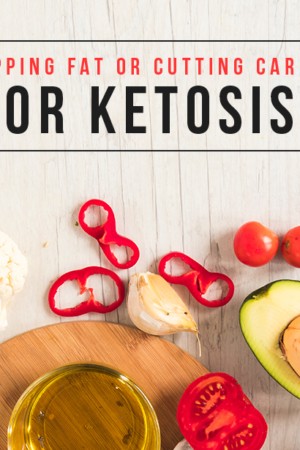Starting any type of new diet is often a difficult process. We are creatures of routine, and when it comes to the food we eat, it can certainly be difficult to give up those breakfast cinnamon rolls and the midday pizza. On the Keto Diet, giving up broccoli and asparagus might not be that hard for many people, but drastically limiting your carbohydrate intake also means getting rid of bread, rice, potatoes, pasta, and other food items that are staples in the American diet.
The potential health benefits of switching to a keto diet are well documented, and many people are making the decision to help their body burn ketones instead of carbohydrates as their primary fuel and energy source. If you are considering switching to the Keto Diet, or simply want to lower your overall carbohydrate intake, below we have a few tips on how to healthfully and safely begin the Keto Diet.
Tip #1: Learn to Count Your Carbs
As most people know, the main difference between the Keto Diet and other diets is that you will be vastly reducing your carbohydrate intake. Roughly, you want to aim for between 20 and 30 grams of net carbohydrate intake each day. Net carbs can easily be calculated by subtracting grams of fiber from the total grams of carbohydrate. Nutrition labels are required by the Food and Drug Administration (FDA) 1 to include these numbers on the label (in grams, thankfully), so it should not be hard to calculate what you eat.
During the first week or so, it might be a good idea to limit eating out, since it is harder to determine your actual carb intake from foods prepared by restaurants. For example, cream sauces are often cheaply thickened with white flour in some restaurants.
Reading (and understanding) labels will most likely be tedious at first, but after a couple days, it will grow to become a habit and you will almost automatically be able to calculate how many net carbs you get per serving size as you browse through the grocery store aisles.
Tip #2: Get Your Carb Intake and Exercise in the Morning
Most people starting on the Keto Diet might feel sluggish during the mornings because of the lack of glucose-based energy in your system. If you feel you need a boost of energy in the mornings, get your 20-30 gram fix of carbs during an early breakfast. Before you head to work where most people are mostly sedentary, incorporate a short workout immediately after breakfast.
Early morning exercise has proven medical benefits2, and this routine will also help you burn off those carbs that woke you up and gave you an initial early-morning burst of energy. Without glucose in your system, you should be able to move into a state of ketosis during the rest of the day assuming you can stay away from the carbs.
Tip #3: Track Your Ketone Levels
One inevitable question that always comes up for people who are new to the Keto Diet is: “Am I in ketosis yet?”
While ketosis is not exactly a state of nirvana, it is helpful to know when you have achieved optimal ketone levels in your system. This will help you associate the noticeable health benefits with what is really going inside your body, as well as assess how faithful you have been to your low-carb goals.
NUTRITIONAL DISCLAIMER
The content on this website should not be taken as medical advice and you should ALWAYS consult with your doctor before starting any diet or exercise program. We provide nutritional data for our recipes as a courtesy to our readers. We use Total Keto Diet app software to calculate the nutrition and we remove fiber and sugar alcohols, like erythritol, from the total carbohydrate count to get to the net carb count, as they do not affect your blood glucose levels. You should independently calculate nutritional information on your own and not rely on our data. The website or content herein is not intended to cure, prevent, diagnose or treat any disease. This website shall not be liable for adverse reactions or any other outcome resulting from the use of recipes or recommendations on the Website or actions you take as a result. Any action you take is strictly at your own risk.
- Benefits of Eating Rabbit Meat - August 20, 2018
- Raising Your Own Food for a Keto Diet: A Primer on Raising Rabbits - August 15, 2018
- Some Possible Health Effects of Meat Raised on Industrial Farms - June 25, 2018




